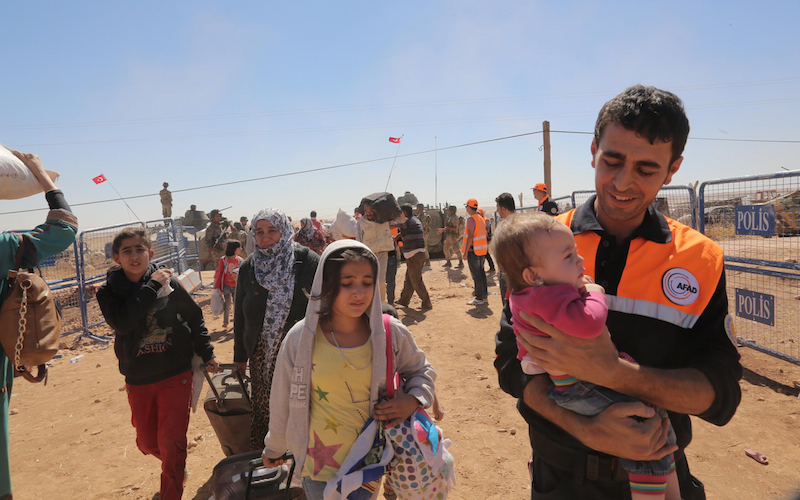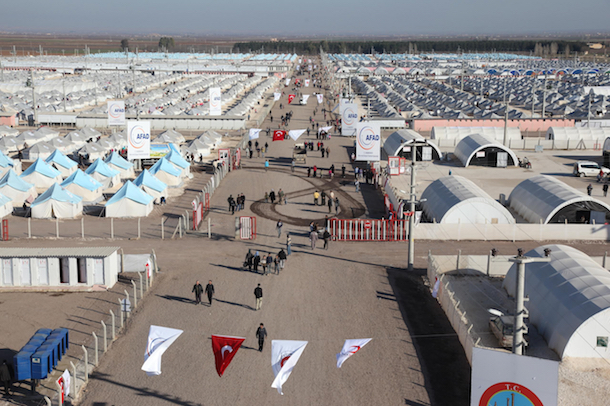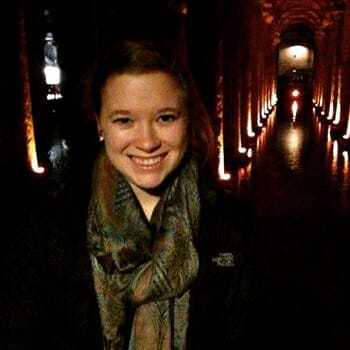
Turkey Can No Longer Stem Migrant Crisis Alone
With over 2.5 million refugees within its borders, Turkey has reached its capacity to accommodate the mass influx of migrants. Even though it has reached capacity, Turkey is still providing assistance to refugees in Syria by creating camps along the border. Those with medical emergencies are allowed to cross. Turkey’s Bab al-Salameh border near Aleppo (a city 60 miles south of Turkey) houses 30,000 refugees currently seeking entrance into Turkey. This number is likely to increase to 65,000, and the government has estimated that 600,000 could bombard Turkey all at once in a worst case scenario.
Turkey has received accolades from world leaders in the past few months for housing the bulk of the Syrian refugees within its borders. Most recently, former US President Bill Clinton stated, “Turks did a remarkable job by accepting all refugees,” and the small Turkish city of Kilis was nominated for the Nobel Peace Prize for its acceptance and treatment of these people. Turkey has remained the most welcoming country for Syrian refugees and has launched programs including one in January that provide Syrian migrants with work permits as well as other programs that ensure access to health care services and the establishment of the Directorate General for Migration Management (DGMM).
Turkey is frustrated and overwhelmed. “The economic, social and political impact of refugees is growing,” wrote Kemal Krisci of Brookings in September, “it is difficult to see how Turkey will be able to cope without greater burden sharing with the international community.”
Turkey has managed to hold these refugees without much help from the international community thus far. The lack of action by the international community is a source of shame said Chuck Freilich, Senior Fellow of the International Security Program at Harvard University, at a recent Turkish Heritage Organization event.
The period of independently caring for these refugees is over. Now, more than ever, the world must take action to lighten Turkey’s burden.
A positive start by the international community are pledges of humanitarian assistance for Syrian refugees. In a campaign in London on February 4th, more than $10 billion in aid was promised to Syrians displaced by civil war. The UK promised $1.7 billion, the U.S. will provide an additional $925 million on top of the $4.5 billion it has already provided, and Germany committed $2.6 billion. This aid is a welcome relief to Turkey and other countries like Jordan that have been financing the migration with their respective national budgets. To date, Turkey has spent over $8 billion on Syrian migrants.
Considering Turkey’s limited capabilities and little incentive to stop refugees from entering Europe, last year Turkey looked the other way as an estimated 850,000 migrants crossed by sea into Greece. In November, the European Union recognized that it could no longer ignore the situation in Turkey. The EU offered $3.3 billion in aid to help stem the flow of migrants. The smuggling trade has become more dangerous and has lost much of its profitability. Operations have yielded over 3,700 arrests, and Turkey has stepped up its patrols. The work permit program launched in January 2016 also encourages Syrian refugees to stay in Turkey rather than continue to the EU. Although Turkey received aid from the EU, the agreement has imposed a larger burden. In order for Turkey to do more, the EU must deliver on its promises of money, visa issues, and accession talks.

NATO announced on February 9th that it will discuss a Turkish request for help stemming the flow of refugees into Europe. Turkish officials have proposed using ships from NATO countries to try to intercept or deter migrants who smugglers are transporting from Turkey to Greece. NATO has now implemented its first actions in the migrant crisis. On February 11th, NATO ships were deployed to the Aegean Sea to deter people-smugglers taking migrants from Turkey to Greece.
Perhaps the most significant action NATO and other international actors can do is halt Russian aggression. Russian bombs have directly led to the latest surge of refugees. Russian airstrikes pulverized the area around Aleppo to provide cover for forces backing Syrian President Bashar al-Assad. Assad’s forces have severed the main road from the Aleppo to Turkey, cutting supply lines to rebels and NGOs. The city is expected to starve and as many as 150 civilians died in the bombings. The scale of the Russian strikes around Aleppo is unprecedented, with bombers descending on the city four at a time.
State Department Spokesman John Kirby called upon Russia to cease its bombings of Aleppo and concentrate on the common enemy, Da’esh. This statement followed Secretary Kerry’s call to Russian counterpart Sergei Lavrov and an announcement in London condemning the bombings. Similarly, NATO Secretary General Jens Stoltenberg said these Russian airstrikes were “undermining the efforts to find a political solution to the conflict.” However, these words ring on deaf Russian ears. Russia has defended its actions, showing no signs of remorse or backing down. More aggressive action needs to be taken in order to prevent Russia from endangering Syrian civilians and worsening the refugee crisis.
A no-fly zone could also help alleviate the refugee crisis. Although a no-fly zone would not prevent hostilities on the ground, it would prevent bombings like those that occurred in Aleppo. Furthermore, no-fly zones in particular could bring an end to the Syrian regime’s campaign of barrel bombs that are killing 200 civilians a week. Some reports have indicated the U.S. previously agreed to a no-fly zone for the Incirlik air force base; however, no such area has materialized. Freilich identified a no-fly zone as one of the best actions the international community can pursue in order to do more for the country.
Most refugees are uneasy about staying within Syria’s borders. Many even said they would sacrifice food and water for the security that they would receive inside Turkish borders. Prime Minister of Turkey Ahmet Davutoglu stated that Turkey still has an open door policy, and he is ready to let in another wave of refugees if necessary. However, Davutoglu has made the point that by closing the gates because Turkey can no longer handle this problem alone. For now, the 30,000 refugees stuck on the Syrian side of the border hope the Prime Minister and the Turkish government will reconsider.
Turkey has reached its capacity to properly care for refugees within its borders. Unless the international community takes real, pragmatic action, Turkey faces the prospect of the crisis worsening. The issue is no longer geographically isolated. This is an international dilemma.

